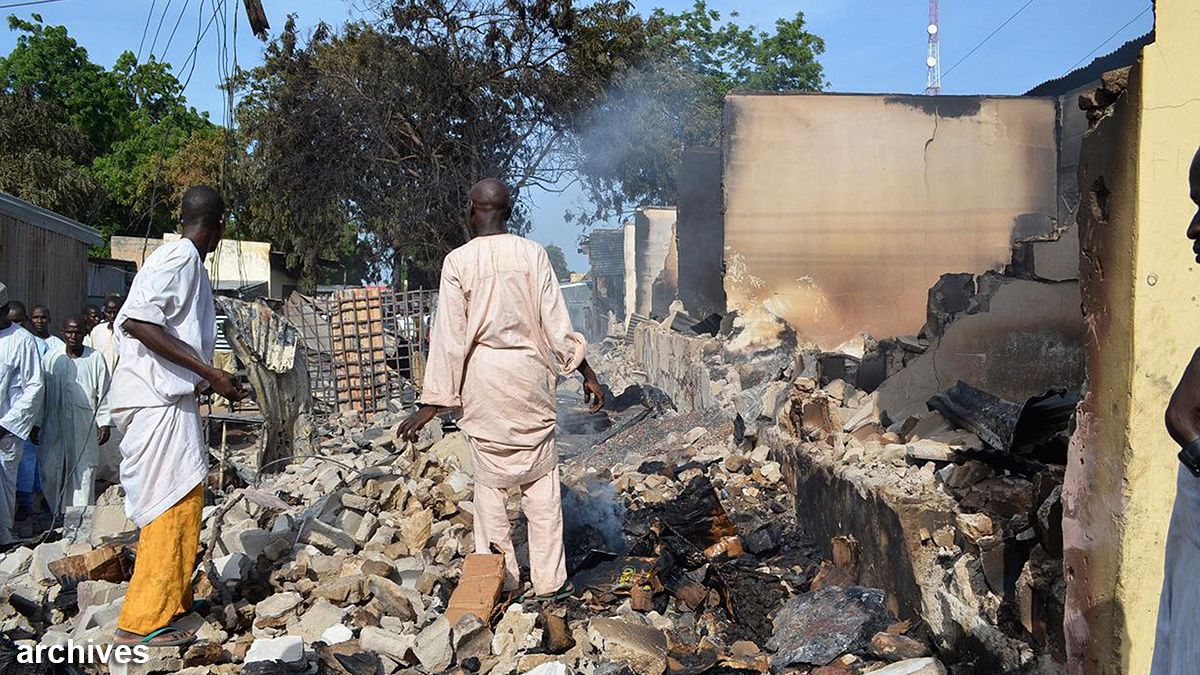Last week, while the world’s eyes were turned towards France following the terrorist attacks on Charlie Hebdo, thousands of kilometres away, more
Last week, while the world’s eyes were turned towards France following the terrorist attacks on Charlie Hebdo, thousands of kilometres away, more than 2,000 Nigerians were reported to have been killed by Islamist militants.
For almost four days, Boko Haram fighters rampaged in the area around the remote town of Baga in the northeastern state of Borno, in what Amnesty International believes could be the group's deadliest attack to date.
The violence culminated with the killing of dozens by suicide bombers in the crowded market places by three suspected child suicide bombers, two of whom are believed to have been no older than 10. All of this with elections in Africa’s most populous nation less than five weeks away.
Silence from within
World leaders condemned the Paris attacks. Among them was Nigeria’s president Goodluck Jonathan, who extended his condolences to French President François Hollande, but stayed silent on the recent Boko Haram attacks in Baga. He finally broke his silence this week in a statement where he expressed his condolences to the people of Borno.
Who are Boko Haram?
Founded in 2002, Boko Haram is a Sunni Islamic fundamentalist sect. Based in northeast Nigeria it advocates a strict form of sharia law. Initially focused on opposing Western education – according to some, “Boko Haram” means “Western education is forbidden” in the Hausa language – the group launched military operations in 2009 with the aim of carving out an Islamic caliphate in religiously mixed Nigeria.
Designated a terrorist organisation by most Western nations and the United Nations, which declared it an al-Qaeda affiliate, the group has killed thousands and kidnapped hundreds, especially children. They made international headlines in April 2014, when they kidnapped more than 200 girls from Chibok in Borno State. In 2014 alone, it’s believed more than 10,000 people were killed as a result of Boko Haram’s campaign of violence. An estimated 1.6 million people have been driven from their homes during the five-year insurgency, mostly in the mainly-Muslim north.
International aid
In June 2014, Britain and the US said they would increase military and educational aid to help Nigeria tackle Boko Haram. A French-led initiative urging neighbours Nigeria, Niger, Cameroon and Chad to contribute troops to a multinational force against the terrorist group has so far failed to be implemented. Niger accuses Nigeria itself of not keeping to commitments regarding its own troop levels.
Does the world care?
Ignatius Kaigama, the Catholic Archbishop of Jos, in central Nigeria, has accused the West of ignoring the threat of Boko Haram and called on the international community to do more to help stop the group’s advance in Nigeria:
“We need that spirit to be spread around. Not just when [an attack] happens in Europe, but when it happens in Nigeria, in Niger, in Cameroon. We [must] mobilise our international resources and face or confront the people who bring such sadness to many families,” said the archbishop.
But beyond condemnation and limited help with training, it seems there is little to no political will to become more deeply involved in the conflict.
